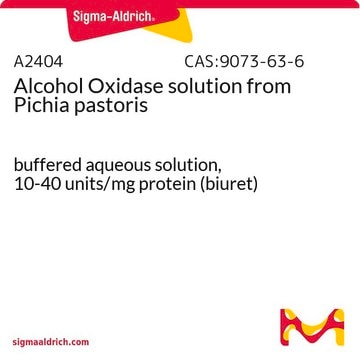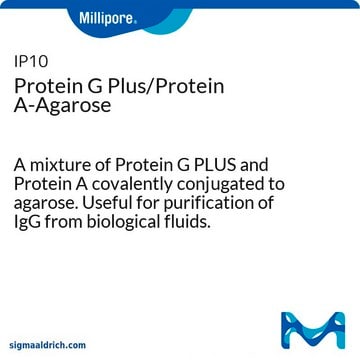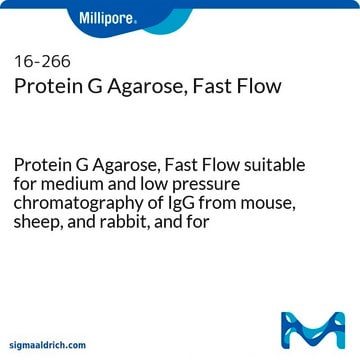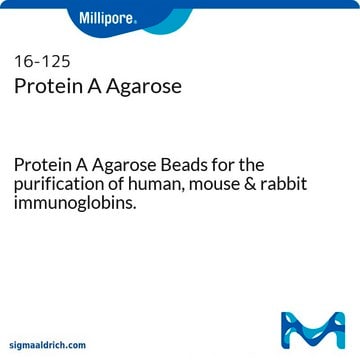A6941
Alcohol Oxidase from Candida boidinii
lyophilized powder, 5-15 units/mg protein
Synonyme(s) :
AOD1, AOX, Alcohol:oxygen oxidoreductase
About This Item
Produits recommandés
Source biologique
fungus (Candida boidinii)
Niveau de qualité
Forme
lyophilized powder
Activité spécifique
5-15 units/mg protein
Poids mol.
octomer 600 kDa by sedimentation equilibrium
Solubilité
100 mM potassium phosphate, pH 7.5: soluble 1.0 mg/mL at 25 °C (Cold)
Température de stockage
−20°C
Vous recherchez des produits similaires ? Visite Guide de comparaison des produits
Description générale
Alcohol Oxidase (AOX) is a homo-octamer composed of eight flavin adenine dinucleotide (FAD) cofactors and belongs to the glucose-methanol-choline (GMC) family of oxidoreductases. The AOX1 and AOX2 genes are responsible for encoding AOX. Alcohol oxidase is primarily localized in the peroxisome but is also found in the cytoplasm. Alcohol oxidase is a 600 kDa homooctomeric flavoprotein with eight equal 74 kDa subunits; each containing a flavin adenine dinucleotide (FAD) molecule.
Application
- to catalyze the oxidation of short-chain, primary, aliphatic alcohols to their respective aldehydes .
- to study methanol metabolism in yeasts, such as Candida, Pichia, and Hansenula.
- to study protein translocation into peroxisomes.
- for the determination of ethanol concentration in alcoholic drinks using enzymatic assay.
- in development of enzyme electrode for the determination of alcohols.
Actions biochimiques/physiologiques
Définition de l'unité
Forme physique
Code de la classe de stockage
11 - Combustible Solids
Classe de danger pour l'eau (WGK)
WGK 3
Point d'éclair (°F)
Not applicable
Point d'éclair (°C)
Not applicable
Équipement de protection individuelle
Eyeshields, Gloves, type N95 (US)
Certificats d'analyse (COA)
Recherchez un Certificats d'analyse (COA) en saisissant le numéro de lot du produit. Les numéros de lot figurent sur l'étiquette du produit après les mots "Lot" ou "Batch".
Déjà en possession de ce produit ?
Retrouvez la documentation relative aux produits que vous avez récemment achetés dans la Bibliothèque de documents.
Les clients ont également consulté
Protocoles
To measure alcohol oxidase activity, this assay uses 2,2′-azino-bis-(3-ethylbenzothiazoline-6-sulfonic acid) and a continuous spectrophotometric rate determination at 405 nm.
To measure alcohol oxidase activity, this assay uses 2,2′-azino-bis-(3-ethylbenzothiazoline-6-sulfonic acid) and a continuous spectrophotometric rate determination at 405 nm.
To measure alcohol oxidase activity, this assay uses 2,2′-azino-bis-(3-ethylbenzothiazoline-6-sulfonic acid) and a continuous spectrophotometric rate determination at 405 nm.
To measure alcohol oxidase activity, this assay uses 2,2′-azino-bis-(3-ethylbenzothiazoline-6-sulfonic acid) and a continuous spectrophotometric rate determination at 405 nm.
Notre équipe de scientifiques dispose d'une expérience dans tous les secteurs de la recherche, notamment en sciences de la vie, science des matériaux, synthèse chimique, chromatographie, analyse et dans de nombreux autres domaines..
Contacter notre Service technique










